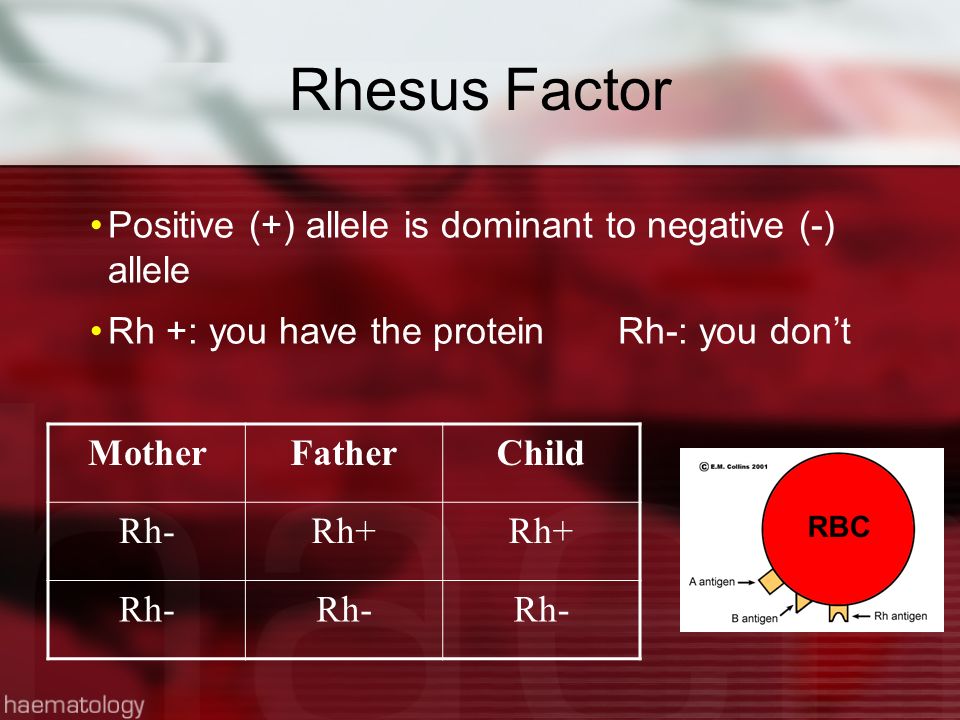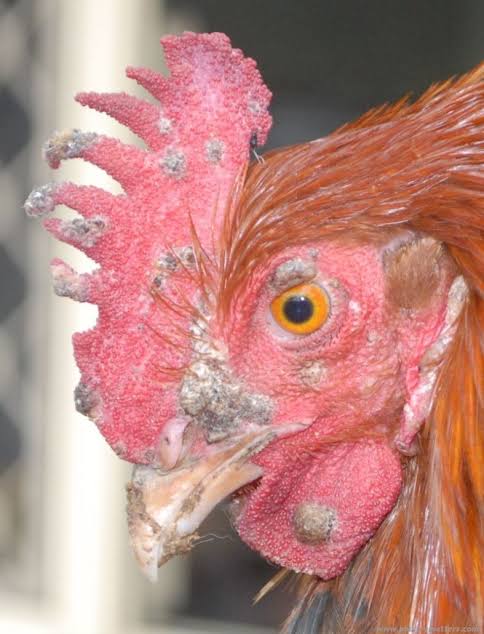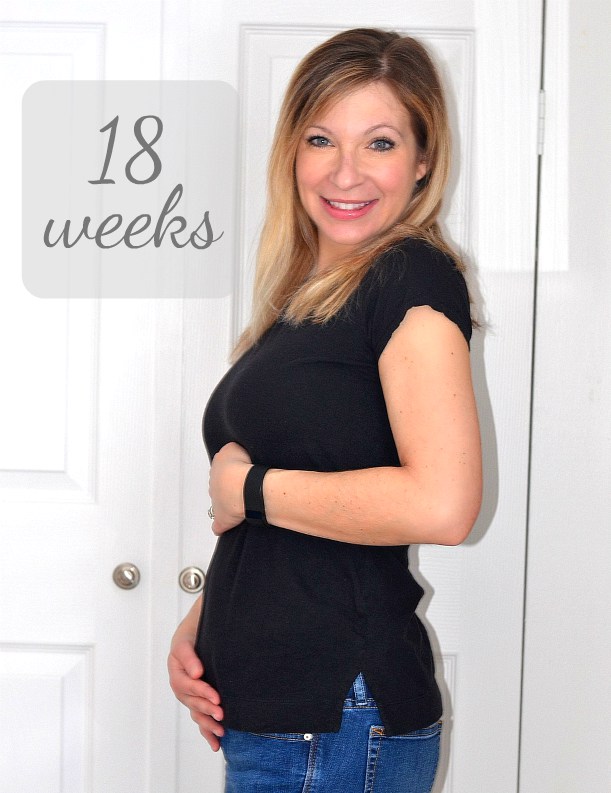Babies with father
The ultimate rookie dad guide to newborns
From changing diapers, to bonding with baby and supporting your partner, here's how to get comfy with the new addition.
When our first son was born, I was a musician, which meant that, apart from not making much money, I was home a lot during the day with my wife and baby. Sometimes, when I saw she was exhausted, I would try to help out by shooing her off to bed. “Don’t worry,” I’d say to Holly. “I’ll look after him. Get some rest.”
Inevitably, Riley would start fussing. I’d be working away to comfort him, and before long I would hear the thump, thump, thump of Holly running down the stairs as if the house were on fire. Although she never actually said these words, the urgency of her movement and her body language said, “What are you doing to my baby?!” It was as if she just had to know, at that millisecond, exactly what was going on and what she could do about it. Eventually we were able to joke about it, but at first I saw it as interference. I wanted the chance to learn to comfort Riley myself, and I needed the time and space to work it out. I wasn’t going to get anywhere if I got rescued whenever the going got tough.
What I didn’t realize was that my wife’s behaviour was much more about her than it was about me. I didn’t understand the pressure she felt to become an instantly competent mom, nor her intense need to bring order to her drastically altered world, and that meant being able to calm her baby.
It might seem odd to begin an article about fathers and babies with a story about a father and mother. However, I think that’s where you have to start because, while a mother has a pretty direct line to her baby, a father’s connection goes through the mother and, in the beginning, the father-infant relationship can never totally exclude her. When a new dad wants to build his relationship with the baby (which we’ll get into later) he must remember that it develops within the context of the mother-baby relationship.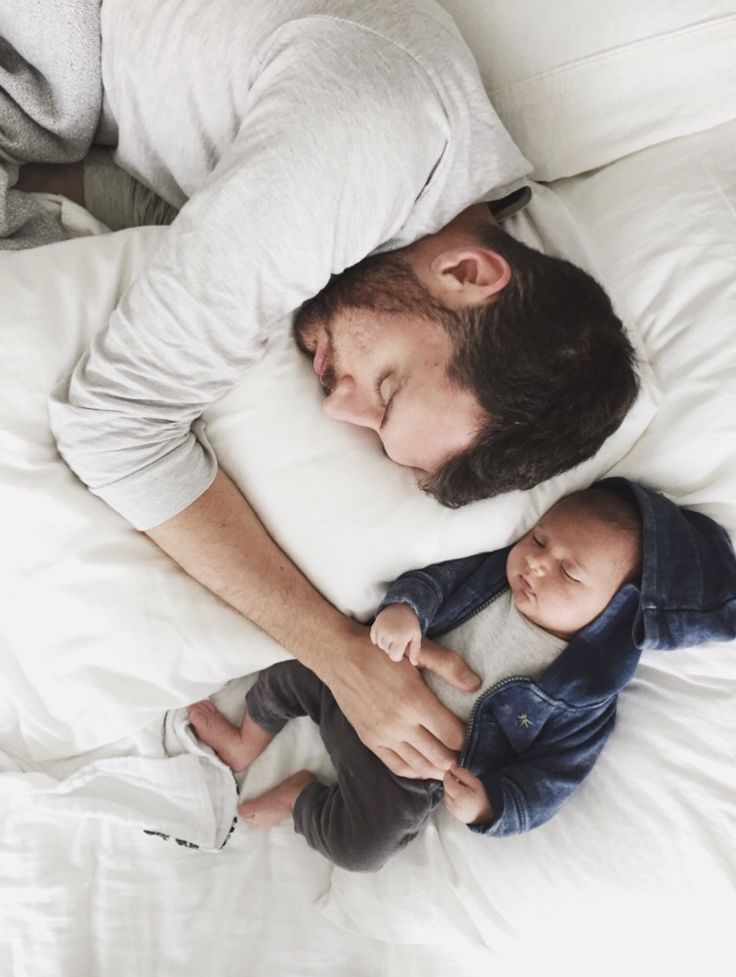 If he doesn’t understand this, he may run into trouble.
If he doesn’t understand this, he may run into trouble.
There was a time when we didn’t need to think about this. Gender roles were clearly divided and babies were seen by everyone as women’s territory. But now, fathers have invaded that territory. In our culture, most fathers want to be — and are expected to be—involved with their babies. That’s good, but we need to keep in mind that some of the realities from the past still hold true today.
Women are still socially and biologically programmed to be parents much more strongly than men are. Mothers expect to be “in charge” of babies and, in most families, they assume that role early on. When a father moves in to pick up the baby, he’s moving into her world. Therefore he needs to understand a little about that world.
The first thing to recognize is the intense nature of her relationship with her child. She’s in love, or at least falling in love. Clearly it’s not exactly the same as it is with a lover, but the emotional intensity and the obsession are similar.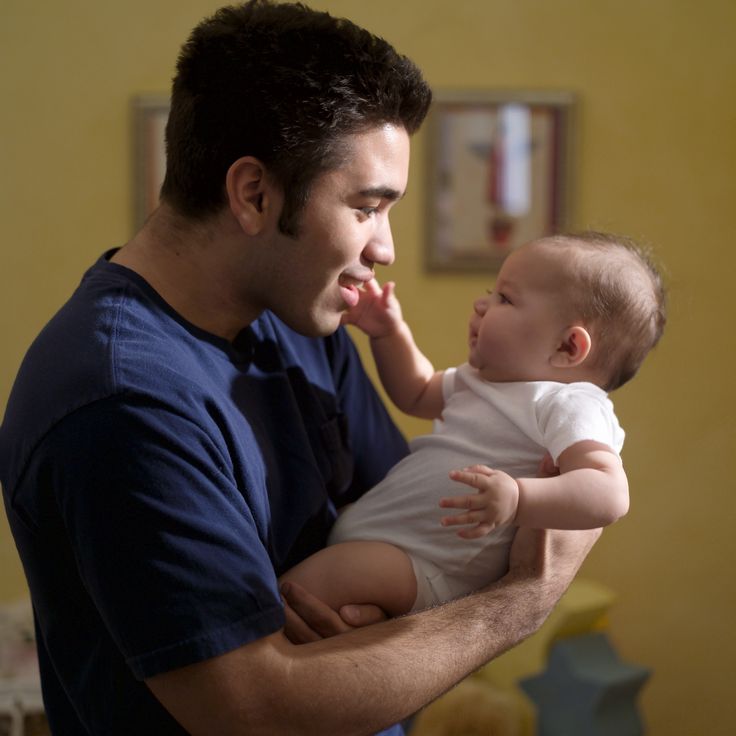 At times she acts as though the rest of the world is irrelevant. Observant fathers pick up on this and quickly get a sense that something of great significance is going on between their partner and the new baby. Often they are in awe of this relationship and will defer to mother and baby in order to keep from interfering with it. This is partly a good thing—the emerging mother-baby relationship needs to be supported, and fathers can play an important role by mothering the mother. (Somehow, “fathering the mother” doesn’t have quite the right ring to it.) But a father needs to develop his own connection, which means he needs to get at the baby. This is when he can become an “intruder” if he doesn’t watch his step, as my first experiences with Riley illustrated.
At times she acts as though the rest of the world is irrelevant. Observant fathers pick up on this and quickly get a sense that something of great significance is going on between their partner and the new baby. Often they are in awe of this relationship and will defer to mother and baby in order to keep from interfering with it. This is partly a good thing—the emerging mother-baby relationship needs to be supported, and fathers can play an important role by mothering the mother. (Somehow, “fathering the mother” doesn’t have quite the right ring to it.) But a father needs to develop his own connection, which means he needs to get at the baby. This is when he can become an “intruder” if he doesn’t watch his step, as my first experiences with Riley illustrated.
These encounters taught me (although I didn’t fully understand it until later) that the relationship between my wife and our sons was palpably physical. The mind and body of a mother are intimately connected. When a nursing woman hears her baby cry, even if she’s in another room, it triggers the release of a hormone that lets down her milk and makes her breasts leak.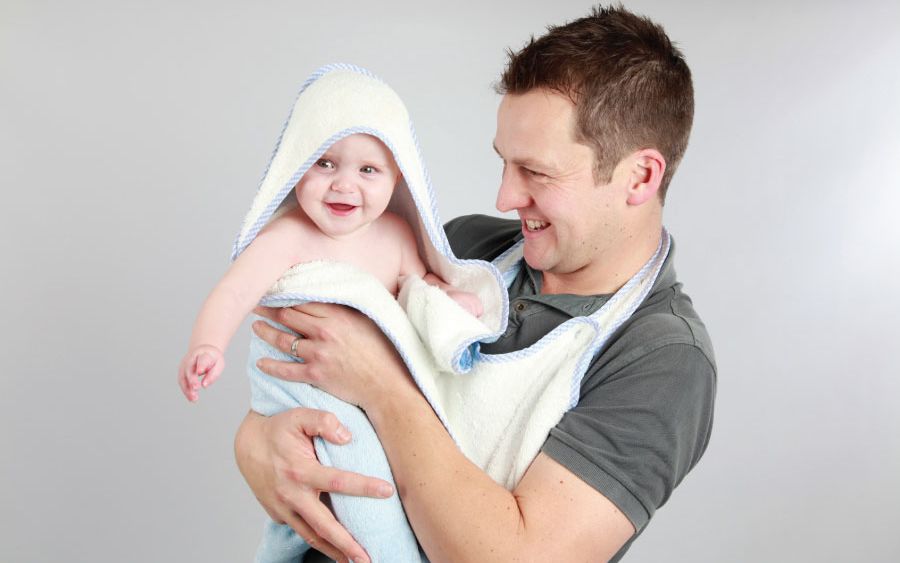 That kind of physical response, combined with the strong emotional connection, means that most mothers respond to a baby’s distress more quickly and strongly than fathers. That’s what compelled Holly to take the baby from me sometimes. Even though she desperately needed rest, there was just no way for her to lie up there and relax while he was crying. If her baby was in distress, she was in distress.
That kind of physical response, combined with the strong emotional connection, means that most mothers respond to a baby’s distress more quickly and strongly than fathers. That’s what compelled Holly to take the baby from me sometimes. Even though she desperately needed rest, there was just no way for her to lie up there and relax while he was crying. If her baby was in distress, she was in distress.
It wasn’t really a question of who was right and who was wrong. Holly was right to respond to those cues. That was part of what helped her become a good mom. But, at the same time, I was right to want to learn to comfort Riley myself.
This dynamic plays out a little differently in each family, but I think it speaks to an incompatibility that a man must acknowledge and work around. It requires an adroit balance: He must patiently persist in establishing his own connection with his child, while at the same time supporting and respecting his partner’s relationship with the baby. It’s one step forward, one step back.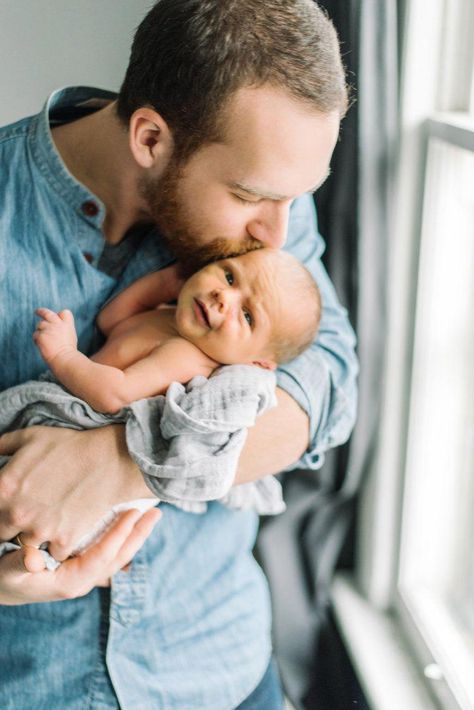 The idea is to make the forward steps a little bigger.
The idea is to make the forward steps a little bigger.
Now, about that baby.
With a new baby, there are two essential tasks: taking care of him and getting to know him. Looking after babies involves relatively simple skills. You need to feed them, interact with them, comfort them when they’re upset, keep them reasonably clean and give them a safe, comfortable place to sleep. Mind you, the skills may not seem so simple the first time you’re confronted with a little mass of waving arms and kicking legs who, upon being lowered to the change table, reaches desperately as if you had dropped him into an abyss. However, baby care is easily learned by almost anyone who is willing to (or has to) get in there and do it.
Getting in there and doing it also helps with your other task, which is getting to know him. In fact, the two are interdependent: You get to know your baby partly by handling and caring for him. At the same time, knowing him makes you more attentive, which enables you to better understand and respond to his needs. And all of this helps you bond with your baby.
And all of this helps you bond with your baby.
I remember asking a friend once—this was before I had kids—how he knew what the baby wanted. “He tells you,” my friend replied. I had no idea what he meant. How can a baby tell you? But now that I’ve looked after three babies of my own, I understand. The baby does tell you, but not with words or gestures or even looks that pass between you. It’s more that, as you spend time together, you learn to read the baby’s cues—his body language or his cries or coos in various situations. Whatever you might think of your wife’s apparent instinct for this, it’s an acquired skill that requires time and togetherness.
Part of developing the ability to read cues involves fathers and babies becoming comfortable together. I mean physically comfortable. Again, this takes time and daily caregiving helps because changing, dressing, bathing and comforting all require you to touch the baby. But there’s a particular level of physical contact that comes when parents and babies are just hanging out, and getting to this place means finding the way your bodies fit together.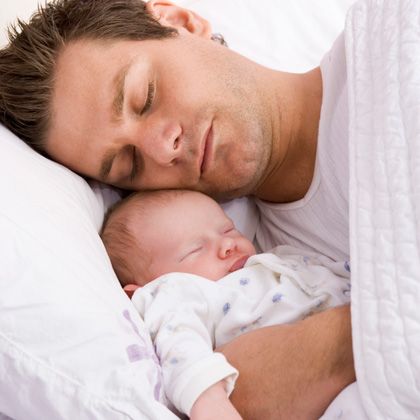 Each one of my kids seemed to want me to hold him differently, and it usually took a little time for us to figure out what that was. Quiet, relaxed time together helps you find this fit.
Each one of my kids seemed to want me to hold him differently, and it usually took a little time for us to figure out what that was. Quiet, relaxed time together helps you find this fit.
Mothers usually experience this by default. The child is born of her body, they usually spend a lot of time together and, if she’s nursing, they have a way to quite literally plug in to one another. For fathers it’s not quite as straightforward. It helps to make sure you get some of your holding time with a happy baby. Dads’ holding time is often “work”—caregiving, or coping with a fussy baby when mom is at the end of her rope. This is necessary, but you also need some undemanding time where you and the baby can just feel good together. Those are the moments when your baby’s body seems to melt into yours.
I have a half-baked theory that when parents and babies are together like this, little invisible love chemicals pass between them. Whether that’s true or not, the feeling you get from this kind of physical contact teaches you that babies give something back.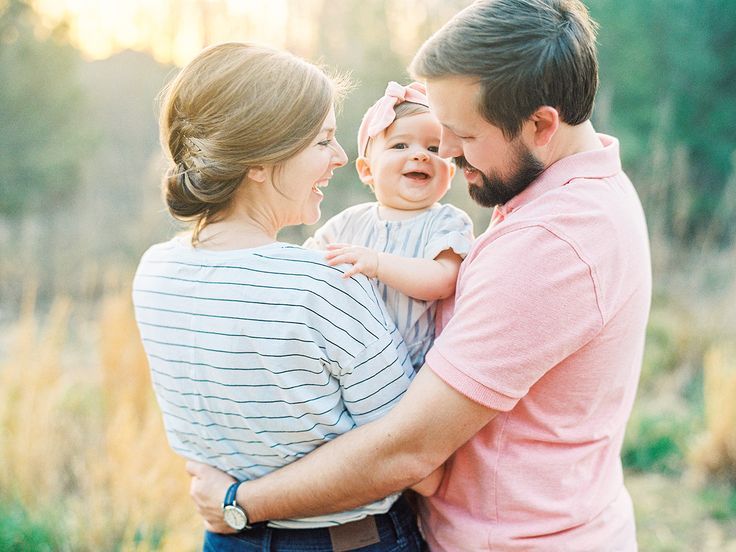 Yes, they can be a lot of work, but there is a wonderful payoff that comes from having his body language tell you, “I feel good with you. I want to be with you.” There is no better feeling in the world.
Yes, they can be a lot of work, but there is a wonderful payoff that comes from having his body language tell you, “I feel good with you. I want to be with you.” There is no better feeling in the world.
Wear your baby
Slings and front packs enable you to give your baby the closeness she needs without always having your arms full. Babies are also usually content in these carriers (particularly helpful with fussy babies), which helps promote bonding.
Your forearm makes a nice pillow
If your baby is always looking for a breast when you hold him, try this position: Hold your baby face down over one arm with his cheek nestled against the soft underside of your forearm and your hand cupping him under the crotch. Some people say this is good for gas. I don’t know about that, but there’s something about a manly forearm that seems to fit well with a baby’s head.
Sing her a song
Singing is one of the best ways to get a baby to respond and pay close attention to you.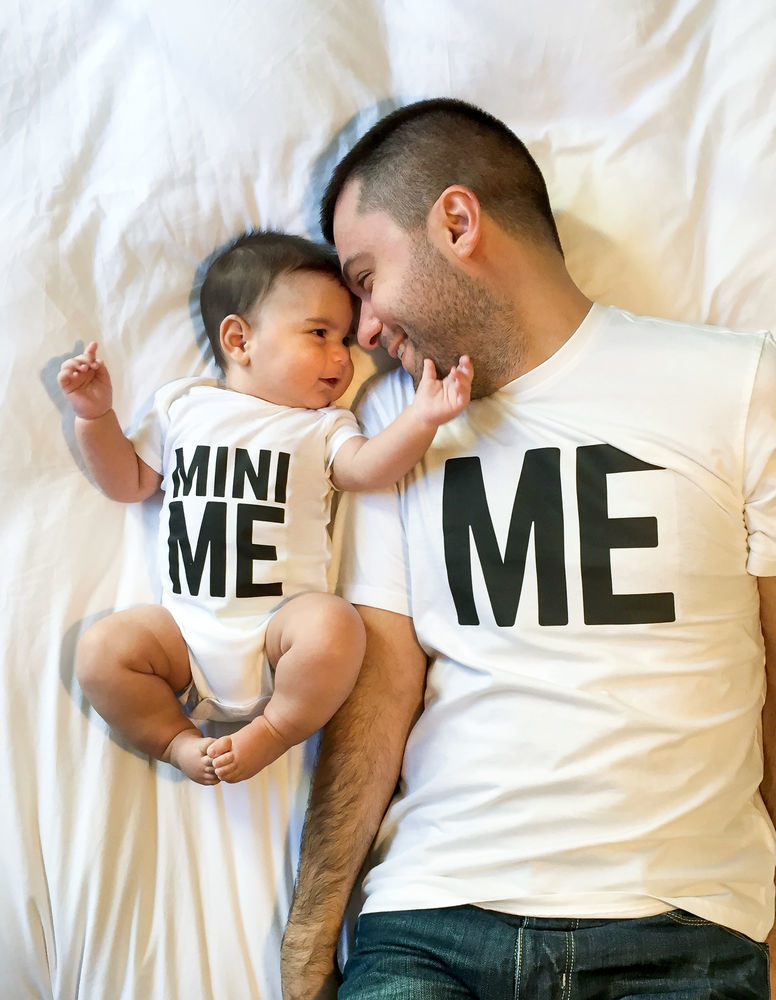 And it doesn’t matter what you sing or how good your voice is.
And it doesn’t matter what you sing or how good your voice is.
Go it alone
It’s hard for a father to work out his own style while mom is looking over his shoulder. It can help if fathers are sometimes left to their own devices with no one to bail them out. Short solo stints (as little as 20 to 30 minutes) with a freshly fed baby are best in the beginning. Early morning is a good time to try this, since many babies are in a good mood at this time of the day, and mom usually needs the sleep anyway.
Develop a thick skin
Your partner will correct you at times. Other times it may seem like she wants everything to be done her way. This is normal. It’s just her way of trying to bring order to a situation that often feels out of control (plus she might actually be right sometimes). This should ease up as her self-confidence and her confidence in your parenting skills increase.
This article was originally published in October 2011.
Stay in touch
Subscribe to Today's Parent's daily newsletter for our best parenting news, tips, essays and recipes.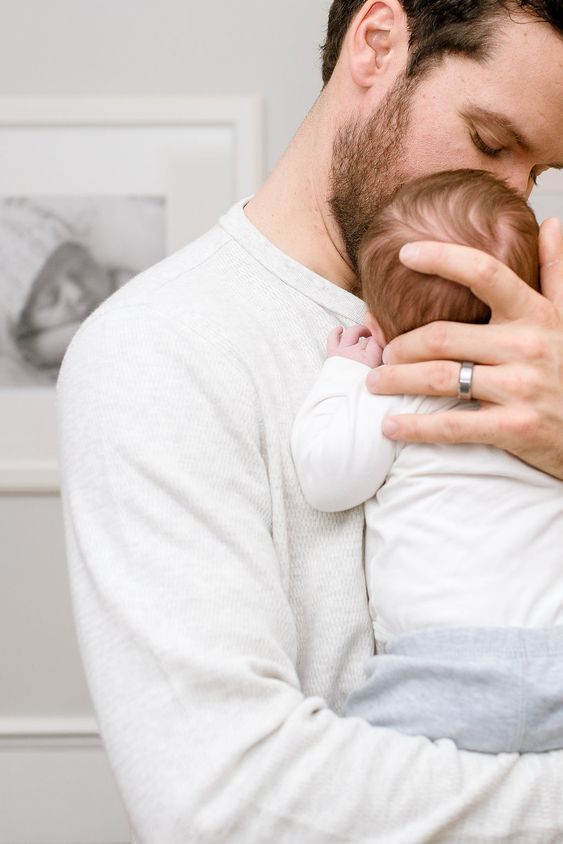
- Email*
- CAPTCHA
- Consent*
Yes, I would like to receive Today's Parent's newsletter. I understand I can unsubscribe at any time.**
FILED UNDER: Baby 0-3 months Bringing baby home New baby new dads New mom
13 tips for father-baby bonding
Whether you’re a brand-new dad or baby is still on the way, you might be feeling a little out of your element when it comes to bonding with your baby. After all, when baby doesn’t do much more than eat, sleep, poop and cry, how do you create that tight bond? And is it really that important at this stage?
Studies show that bonding with your baby has a huge impact on their mental and physical well-being. And babies come into this world ready to build a relationship with their parents. But many dads can feel overwhelmed since they may not have a ton of experience with babies. It might feel like mom, grandma or grandpa already has it all figured out while you’re struggling to know what to do.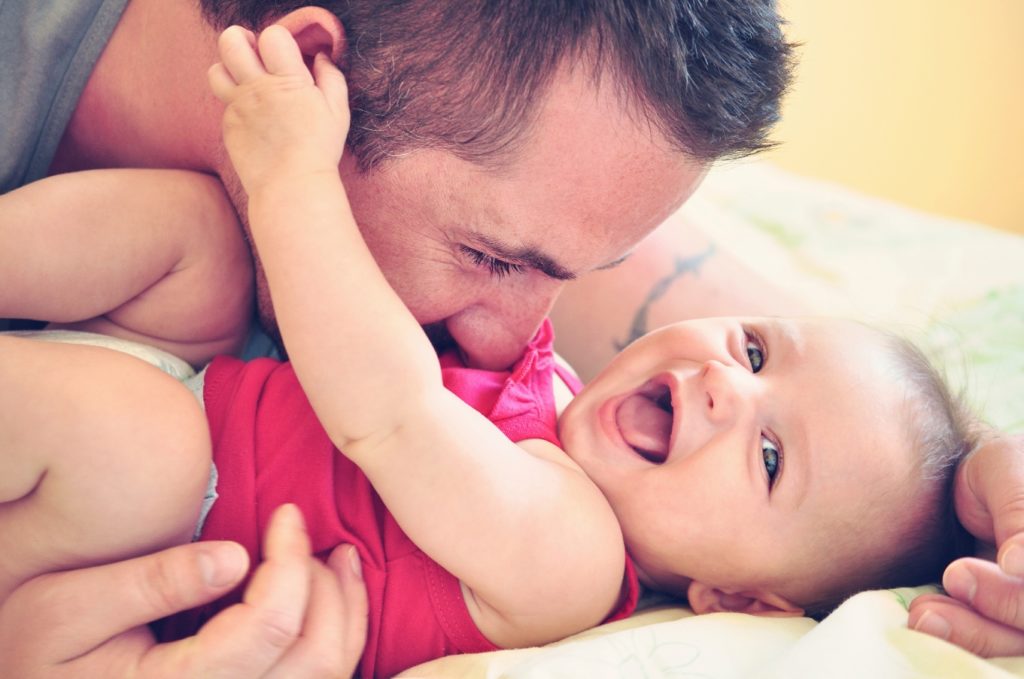
Bonding can seem a lot more difficult than it really is. You’ll be surprised how many skills you already have that can make you a natural at taking care of and bonding with your baby. Try these simple suggestions to build on those skills and help create the father-baby bond in no time.
Ways dads can start bonding with baby during pregnancy
You don’t need to wait until baby is here to start building a relationship with them. But a common question we hear is: How can dad bond with baby in the womb? You can kick-start the bonding by using a few of the following suggestions.
Go to prenatal doctor visits
One of the best ways to start that father-baby bond before birth is to join your partner at prenatal appointments. You’ll be able to hear your baby’s heartbeat, see them moving on the ultrasound screen and hear development updates straight from the doctor or clinician.
If the visitor policy at your partner’s clinic has changed because of COVID-19 restrictions, you can always join the appointment by video or phone.
Take care of mom
Caring for your pregnant partner is caring for your baby. The more comfortable mom is, the happier baby is.
Also, ask your partner how you can help her, or offer to take on some new responsibilities to lighten her load. That might mean taking over some errands, scheduling a recurring date night or doing some baby-proofing chores around the house. Whatever it is, it’ll make you a more active participant in getting ready for the baby to come.
If you already have kiddos in the family, another way to help your partner is to offer to take over parenting duty for the day. Giving mom a break will help her relax. Plus, you’ll get some quality time with your kids before the new baby arrives.
Massage your partner’s belly
Gently massaging your partner’s belly can relieve discomfort and itchiness caused by the growing baby bump. And the bonus? Baby may start to know when their father is touching mom’s belly. Babies can sense touch from anyone, but they can also sense when touch (and voice) is familiar. And by 24 weeks into pregnancy, dad can usually feel baby kick – but the exact time varies.
And by 24 weeks into pregnancy, dad can usually feel baby kick – but the exact time varies.
Take time to learn about pregnancy
Knowing how your baby is growing and what milestones are ahead can help you feel more connected to your little one. For example, did you know that baby can make a fist at 12 weeks gestation? Or, that by 16 weeks they can hear your voice?
Make sure to learn what mom is going through, too. Being pregnant is hard. Part of a dad’s job is understanding the needs of mom and baby.
Talk to other fathers, attend prenatal classes, ask your partner how she’s feeling and talk to her doctor to learn all you can about the baby that’s on the way.
Prepare for the birth
When the big day arrives, you’ll play a huge role in the labor and delivery process. Being a part of planning and preparation can help you take on more fatherly responsibilities before baby is here.
For starters, help your partner make the birth plan. Together you can discuss the kind of birth experience your partner envisions.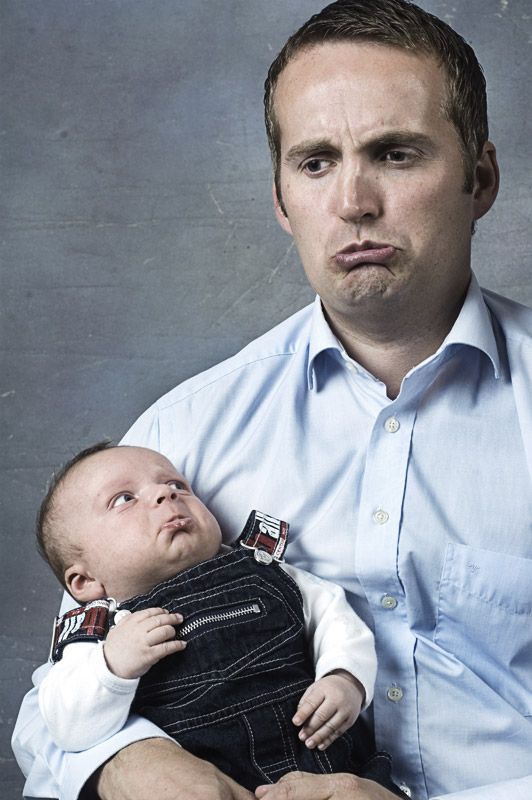 You might think through which hospital or birth center to choose, if your partner would prefer an unmedicated, “natural” birth or an epidural, and other important decisions.You’ll also decide who you want in the room with you and what you want to pack for the hospital.
You might think through which hospital or birth center to choose, if your partner would prefer an unmedicated, “natural” birth or an epidural, and other important decisions.You’ll also decide who you want in the room with you and what you want to pack for the hospital.
Also, take time to learn how best to support your partner during labor and delivery. Attend prenatal classes, ask what your partner needs and reach out to friends and family who have been the support person for their partners.
Ways for dad to bond with their newborn from the moment they arrive
Now that baby is here, daddy-baby bonding time can hit a new level. You’re no longer limited to talking to your partner’s belly. But if you’re not sure where to start, try some of these tips.
Talk to baby
Babies can recognize voices as young as 1 week old. Make sure your voice is one of them! Talking to your baby strengthens language development, helping the part of the brain that understands language grow. They’ll start to pick up speech patterns and tone, which you’ll hear them mimic when they start baby talk.
They’ll start to pick up speech patterns and tone, which you’ll hear them mimic when they start baby talk.
So, talk to your baby throughout the day just like you would to any other member of your family. Chat about what you’re doing, things in your environment and anything else that comes to mind. If you’re not sure what to say, try reading to your baby or singing a song.
For an early start, dads can talk to baby in the womb. Babies can begin hearing sounds and voices around the 18-week mark. Are there any specific benefits of dad talking to baby in the womb? For one thing, talking to them early can help them recognize your voice sooner after they’re born.
Hold your baby close and connect through skin-to-skin contact
You may have heard that skin-to-skin contact is an important way to bond with baby. But it’s not just great for bonding, this kind of touch has many benefits for both you and baby.
Touch helps baby feel safer and can even help reduce how often they cry.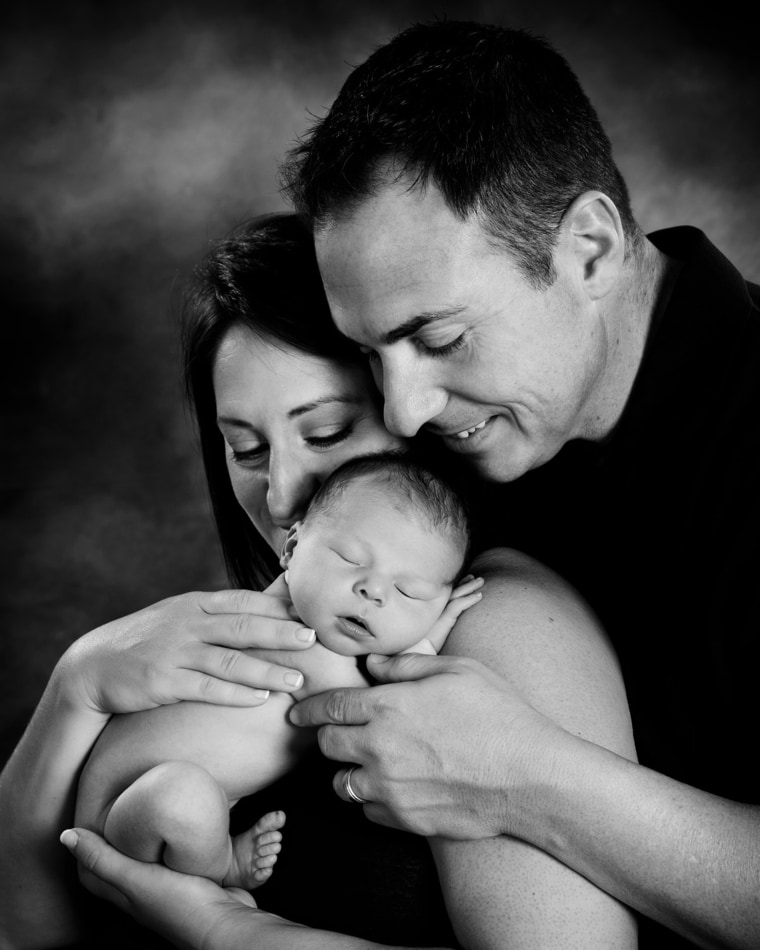 Your body can also help baby regulate their temperature and heartbeat. This a natural ability that both moms and dads have. Skin-to-skin touch also provides tons of other benefits for baby, including improved mental development, reduced stress and possibly a lowered risk of obesity in the future.
Your body can also help baby regulate their temperature and heartbeat. This a natural ability that both moms and dads have. Skin-to-skin touch also provides tons of other benefits for baby, including improved mental development, reduced stress and possibly a lowered risk of obesity in the future.
For you, this kind of touch boosts the “feel good” hormones, endorphins and oxytocin. These create feelings of love, protectiveness and happiness. Plus, they can help reduce stress and boost your confidence as a parent.
Make eye contact
It sounds easy, but making eye contact with your baby is one of the keys to their early development. Studies have shown that regular eye contact can help babies develop stronger language skills by the time they’re 2 years old.
When do babies recognize their father or mother?
Babies can recognize their parents pretty early actually – as young as 4 days old. By making eye contact with your baby during feeding times, cuddle sessions and throughout the day, you’re helping your child memorize your face and learn to trust you. To help your baby get a good look at you, hold them between 8 and 15 inches away from your face while looking into their eyes.
To help your baby get a good look at you, hold them between 8 and 15 inches away from your face while looking into their eyes.
Take part in mealtimes
It’s easy to feel like mealtimes are all about baby and mom, especially if mom is breastfeeding. But you can and should take part, too.
During the first month, newborns eat between eight and 12 times a day. An easy way to get involved with one of baby’s most frequent activities is to simply join in. Be the parent who carries baby to and from mealtimes. This will give mom a break and give you some prime cuddle time throughout the day.
You can hang out during the meal, too. If mom is breastfeeding, ask if you can help support the baby. If you’re bottle feeding, take turns feeding them.
You can also use this time to flex your cleaning skills. Bottles, breast pumps, bibs and everything else used during mealtimes needs to be sanitized after each use. Taking over this chore can give mom a chance to relax and remind you that you play an important part in making sure your baby is well taken care of.
Become the “Diaper Dad”
Taking over some responsibilities with your new baby can be a great way for you to strengthen your relationship. It will build your confidence as a great dad, and it will help your baby learn to count on you.
Consider taking over diaper duty. This is something you can do from day one, helping you share in the work getting you some quality father-baby bonding time.
Make diaper changing a fun event. A changing table can become a stage where you sing silly songs or make funny faces at your baby.
If being in charge of diaper changes doesn’t work for you, choose something else that does. Maybe you’re the dad in charge of the bedtime routine, maybe you’re the parent who soothes baby when they cry. You’ll find what works to create some father-baby bonding.
Show baby the world
Everything is new to babies. Being your baby’s guide to the great, big world can help them learn and grow, as well as develop a strong sense of trust between you and your child. Plus, having outings is just plain fun.
Plus, having outings is just plain fun.
When your baby is brand new, you’ll want to be cautious about exposing them to new illnesses. Their immune system will be low for the first eight weeks or so of their lives. But as they get older – and receive their vaccinations – their world can get bigger and bigger.
Take your baby to places that were special to you as a kid. Maybe you have a favorite park or loved story time at the local library. Visit the zoo, museums and other places with exciting things for baby to look at. Or simply go on walks around the neighborhood, taking in the sights and sounds of home.
If you’re not sure where to start, check out local dads’ groups and parenting classes in your community.
Give mom time with your older kids
If you already have kids at home, adding a new baby to the family can make it more challenging to spend quality time with the older kids. Family dynamics change, making everything from how you introduce the new baby to your kids to one-on-one time with your kids more important.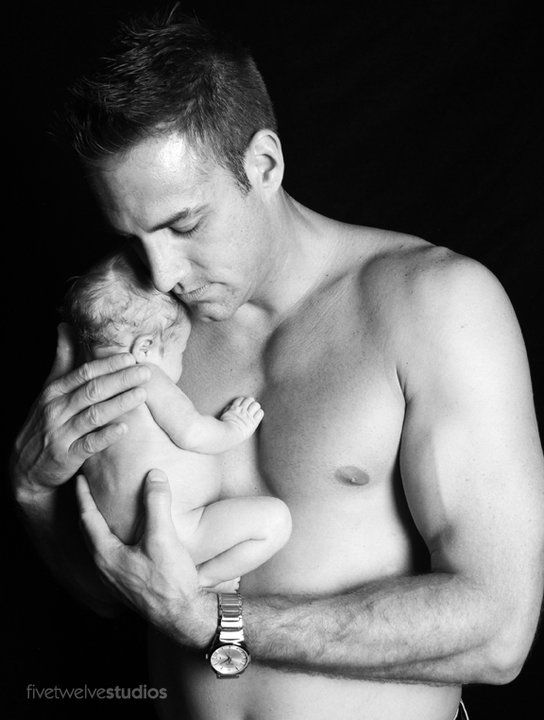
One way to bond with your baby and help your older kids get the attention they deserve is to trade off time with your partner. Choose times when you’ll be alone with the baby while your partner spends time alone with your other kids. Alternate to ensure every kid gets to spend time with both parents.
Keep baby healthy
Being part of your baby’s health is a great way to teach them about a healthy lifestyle and ensure they’re getting the care they need. Choosing a doctor for your baby who can be by their side from birth to early adulthood can help guide you, your partner and baby through all the big milestones and everyday needs.
Join your partner in making the decision. Many different kinds of doctors are able to provide care for infants and beyond, including pediatricians, family doctors, physician assistants, nurse practitioners and many others. Talk as a family about what kind of doctor is the best option for your child. Then, go the extra mile and schedule your baby’s first wellness checkup after they’re born.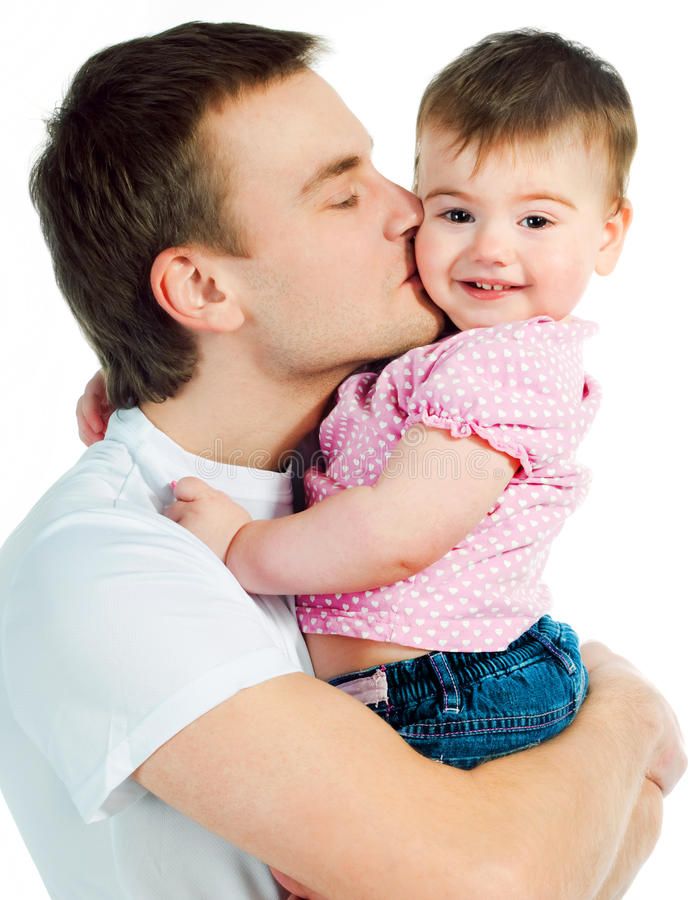
Try not to worry: Bonding happens naturally
Remember, you were made to bond with your new baby. Though it can feel overwhelming at first, natural instincts will take over.
You might already be a pro at making silly faces or the king of dramatic storybook readings. You also probably know which chores you can take on to make everything a true family affair. With a little practice, you’ll have fatherly confidence, too.
If you’re worried that the bond isn’t developing between you and your baby, talk with your child’s doctor.
It’s important to know that feelings of anxiety and even sadness are normal for all new parents. And dads can experience postpartum depression, too. So, don’t hesitate to reach out to your doctor if you need emotional and mental support.
Life with a new baby can be overwhelming. Doctors can offer guidance and answer your questions so you can focus on being the best dad.
Still looking for the right children’s doctor?
Five reasons why a child after a divorce can be left with a father
Photo by Evgeny Smirnov, Kublog Divorce of a married couple with minor children always raises a rather painful question - with whom their offspring will live. Moreover, it is decided only through the court, and if a settlement agreement is not concluded between the parents, it is the judge's verdict that becomes the basis for determining the subsequent place of residence of the kids.
Moreover, it is decided only through the court, and if a settlement agreement is not concluded between the parents, it is the judge's verdict that becomes the basis for determining the subsequent place of residence of the kids.
Family law lawyer Elena Boytsova advises on what reasons may force the court to transfer children to the father and how this can be avoided.
Equal rights of parents to children - truth or myth?
Article 54 of the Family Code of the Russian Federation states that every child has the right to live and be brought up in a family. But in case of divorce, he must stay with one of the parents.
If a settlement agreement has not been concluded between the spouses regarding the “sharing” of children, then their dispute is resolved by the court, based on the interests of minors and taking into account their opinion.
When making a decision, the following is taken into account:
- the age of the child;
- his attachment to each of his parents, brothers and sisters, and relationship with each of them;
- moral and other personal qualities of parents;
- the possibility of creating conditions for the child's upbringing and development (type of activity, mode of work of parents, their financial situation, etc.
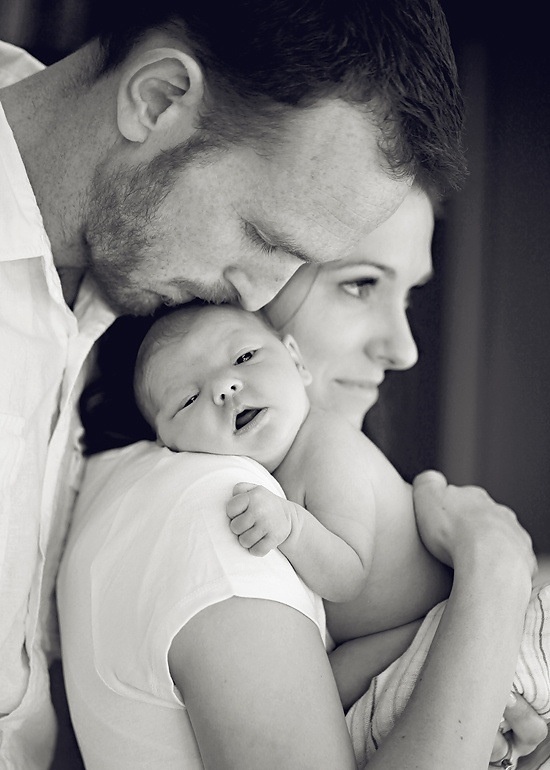 ).
).
However, the judicial practice in the Russian Federation has developed in such a way that in most cases the court takes the side of the mother, “by default” leaving the children with her. The rights of fathers are practically ignored. So, statistics show that strand 94-95% of divorces end with the fact that the children are awarded to the parent. This is due to the widespread belief that the mother has a stronger emotional connection with them, is more responsible and psychologically better prepared for raising babies.
However, not all fathers agree with this position, and can defend their position in court. And to achieve a positive result if they manage to collect the evidence base - the results of examinations, testimonies of witnesses, etc.
For what reasons can the court hand over the children to the father?
The decision to leave children after a divorce from a father is, frankly, atypical for Russian reality: only 5-6% of cases out of the total number of court decisions.
What can affect the verdict in favor of the father:
- When a mother is unable to take care of children due to mental health, health or lifestyle reasons;
- Regular manifestation of aggression against the child, physical and mental abuse by the parent;
- Maintaining an immoral, asocial lifestyle by the mother;
- Lack of a place for her to live with children;
- Lack of funds for their maintenance.
All arguments must be supported by evidence: certificates from government agencies and medical institutions, characteristics, expert opinions, testimonies of witnesses and others.
What can mothers do to defend their rights
Sometimes the spouse, angry with the circumstances, does everything possible to sue the children. Illegal methods can also be used - falsification of documents and expert examination results in order to prove the wife's insanity, collecting negative reviews about her from neighbors, etc.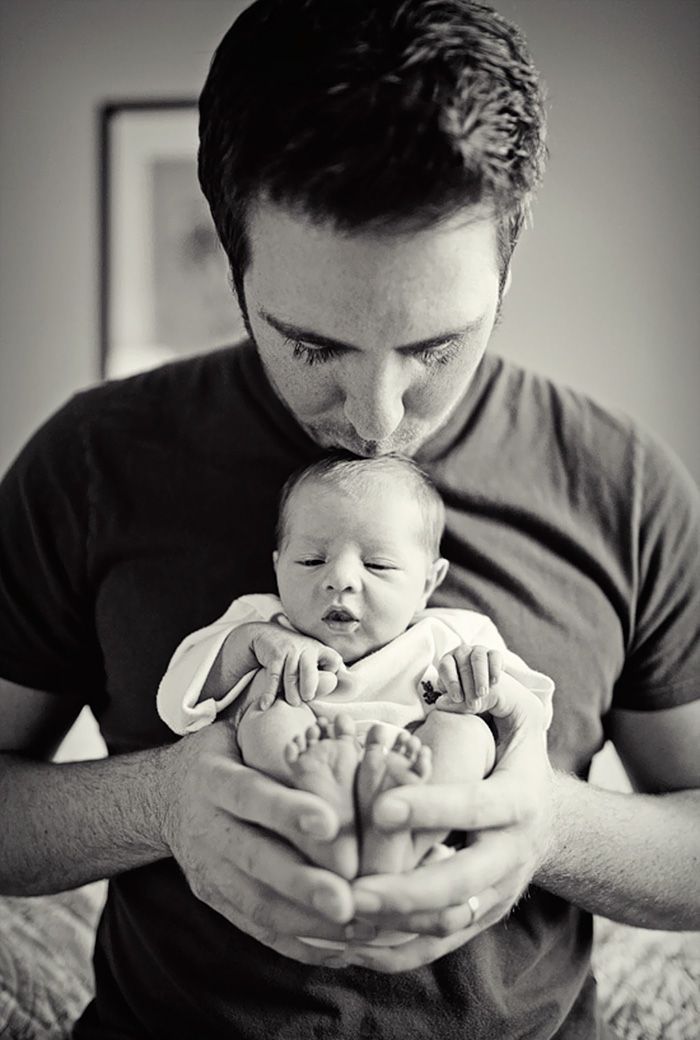 Situations are common when a husband hires a sly lawyer to prove that the mother is breaking the law.
Situations are common when a husband hires a sly lawyer to prove that the mother is breaking the law.
In such cases, it is necessary to order an examination from independent experts and submit its results to the court. It makes sense to get a positive review from the place of work, to enlist the testimony of witnesses (neighbors, teachers at school, etc.) that she is fulfilling her parental responsibilities, to make a certificate of income, to collect documents on the ownership of the apartment. It would be useful to attract people who are ready to confirm that the spouse is not involved in the upbringing of common children.
If the child is 10 years old, the court interrogates him on an equal basis with adults, specifying with whom he wants to stay during a divorce - and without fail takes into account his answer. Children under the age of 10 are interviewed by representatives of guardianship and guardianship authorities.
Right to communicate
Even if the child remains with the father by court order, this does not mean that the mother loses the right to communicate with him and participate in his upbringing.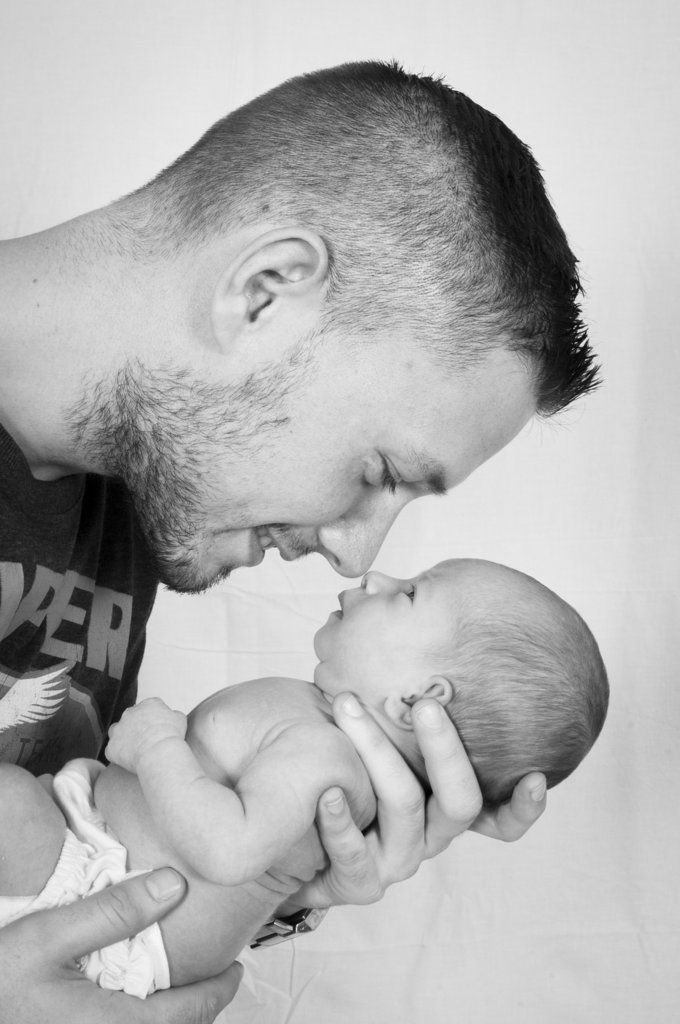 The father is obliged (with the exception of cases of a threat to the life and health of the baby) to provide the ex-wife with the opportunity for such meetings. To avoid scandals, parents have the right to conclude a written agreement on the procedure for exercising parental rights by a mother living separately from the child. If an agreement is not reached on this issue, the order of communication will be determined by the court.
The father is obliged (with the exception of cases of a threat to the life and health of the baby) to provide the ex-wife with the opportunity for such meetings. To avoid scandals, parents have the right to conclude a written agreement on the procedure for exercising parental rights by a mother living separately from the child. If an agreement is not reached on this issue, the order of communication will be determined by the court.
Deprivation of parental rights
However, the problem can go so far that the question of depriving the mother of parental rights in relation to her minor children will be raised before the court. If this happens, it is important to know that the process is reversible, and rights can be restored. To do this, you need to submit an application to the district authority at the place of residence of your husband, indicate in it on what grounds you apply for the restoration of parental rights, and attach documents that will confirm your words.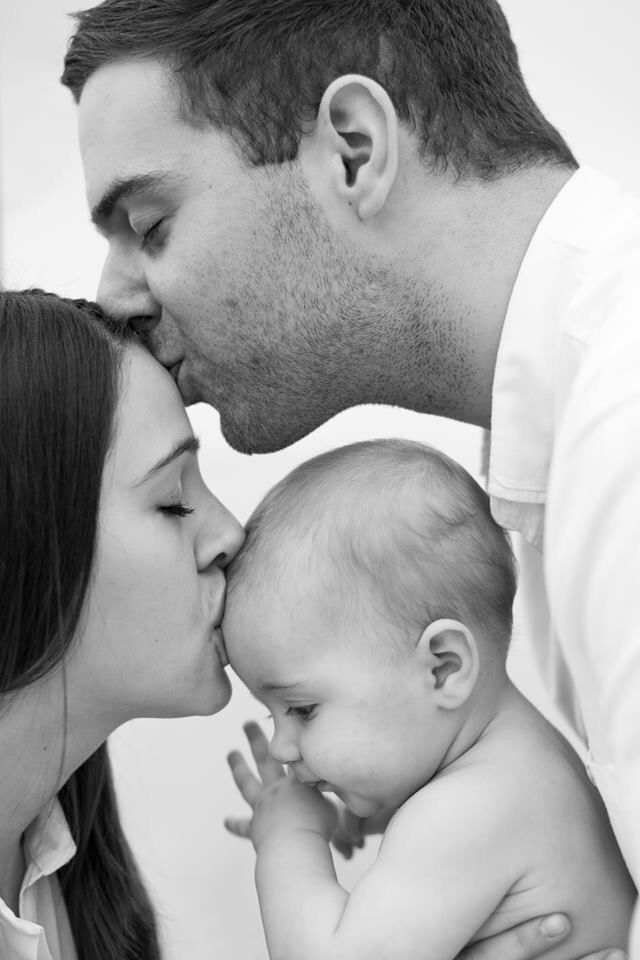 With a positive verdict, the court decision comes into force one month after consideration.
With a positive verdict, the court decision comes into force one month after consideration.
Author: Elena Boytsova - lawyer, Chairman of the Moscow Bar Association "Center for Legal Expertise"
Subscribe to Clerk.Premium!
Irreplaceable and complete information for ridiculous money!
• Mini-courses every day
• Free webinars on hot topics
• Consultations on any issues on the day of treatment
• Access to analyzes of new rules and laws
• Advanced training courses with huge benefits
Leave a request now to receive a personal discount.
Divorce: I left my children with my father and I don't regret it
156,173
Divorce To parents
"I don't love you, it's time for us to part." He froze, jumped up, grabbed me by the collar and pressed me against the wall: “Okay, go away, but without children. ” His look, the harshness of his gesture, this sudden rudeness in the fact that he never raised a hand to me, deeply hurt me.
” His look, the harshness of his gesture, this sudden rudeness in the fact that he never raised a hand to me, deeply hurt me.
I was born in a small town, in a family that lived under the dictation of my father, his moods and outbursts of anger. He was a paramedic, his mother did not work and at home she obeyed him in everything. For my father, my future was obvious: a successful marriage. And, of course, I met the prince: also a doctor, but a higher rank, handsome, smart, courageous.
I followed in my mother's footsteps, becoming, like her, Cinderella with her husband. And I began to read smart books, to study psychology. Five years of such a life turned out to be enough to start suffering ad nauseam from repetitive psychodramatic scenarios.
I knew that if I left with the children, they would become the subject of an endless war.
In the meantime, we had two sons. They were three and five years old when I announced to their father that I no longer wanted to live with him.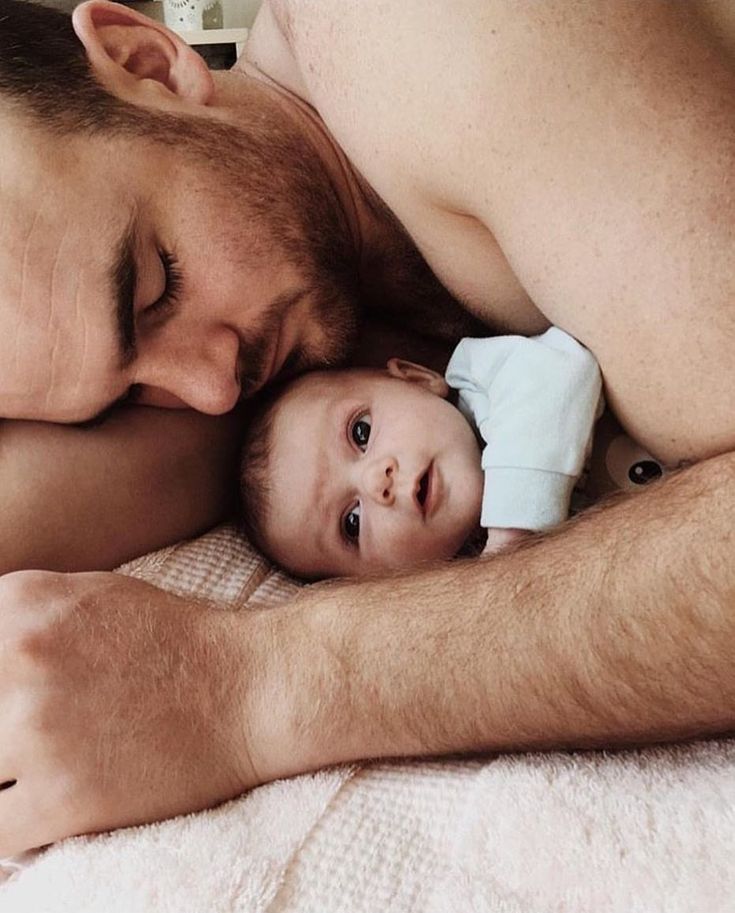 I knew that if I left with the children, they would become the subject of an endless war, and I did not want my sons to live in such a hell. And yet it was beyond my strength to imagine that we live in the same city, and they are not near me.
I knew that if I left with the children, they would become the subject of an endless war, and I did not want my sons to live in such a hell. And yet it was beyond my strength to imagine that we live in the same city, and they are not near me.
I continued to maintain the appearance of family life. At night I got up to look at my sleeping boys and looked for an answer from them. A mother does not leave her children! It's a shame! Hoping to hear my intuition, I picked up the Bible and opened the page at random - pure madness!
I came across a parable about Solomon's decision, where two women came to King Solomon and brought a child: each claimed that it was her son. To judge them, the king took a sword and was about to cut the baby in half. The real mother cried out: “Give it to another woman, just don't kill it!..”
So I got an inner push and made a decision.
We went to court, I signed an agreement that the children would stay with their father. After that, they spent only half of their weekends and vacations with me . .. As a result, life recognized my innocence. Today I have a close relationship with my children, they are doing well.
.. As a result, life recognized my innocence. Today I have a close relationship with my children, they are doing well.
Self-awareness means willingness to act contrary to cultural and social norms
When I left, they were too small to really talk to them. I waited for them to start asking questions, it happened in adolescence. Then I told them the truth about my life, not once did they reproach me for leaving them.
The propensity for reflection, analysis and observation that led me to this step manifested itself in part even in childhood: then it was a thirst to understand the actions of people, to comprehend the emotional pain that my father's antics and mother's obedience caused me, and at any cost to escape from this life.
The price I paid was very high. Consent with oneself in general, the willingness to take risks, to act contrary to cultural and social norms.
But today I see that I was guided by a mysterious and unstoppable force that did its job.
